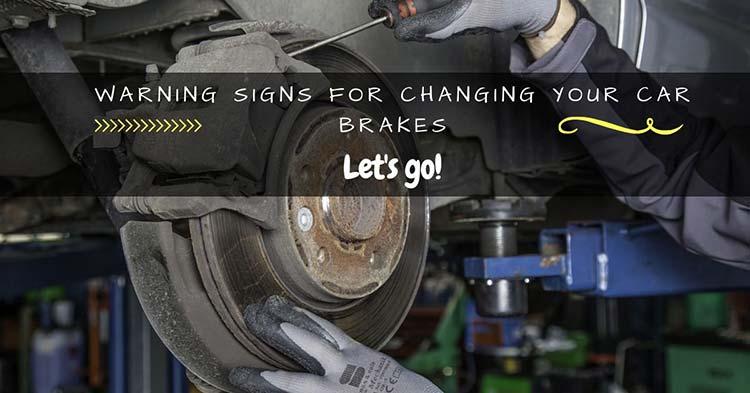
Warning Signs for Changing Your Car Brakes
When you’re cruising down the highway, the thrill of driving may steer your mind off some of the important things about the car you’re driving. When you’re on the open road, it’s easy to drive 70 miles per hour. If you’re driving at this speed, a sudden stop would mean that your car would need to travel 315 feet to come to a full stop.
More...
But, this is only possible if you have well-maintained brakes on your car. If not, you are at high risk to cause a car accident, which, according to tariolaw.com, can result in serious physical injuries and even death.
Your car brakes may not win you points in terms of improving the looks of your car, but they are the most crucial in winning you points in life. It is of high importance that you know the warning signs that may tell you that your car brakes require service.
Brake pads need maintenance because every single time you engage your car’s brakes, it causes wear and tear. Friction can remove the brake pad’s protective coating. Over time, these minute deterioration add up and thin out the brake pads. As a responsible driver, you have to know these warning signs:
Screeching Noises
One of the first things you would notice is a screeching sound or squealing noise when you engage your brakes. The sound comes from the small, metallic shim indicator within the brake pad. This indicator is intentionally placed in your brake pads to alert you. If you regularly hear this noise, then it’s time to bring your car to a brake specialist to undergo inspection.
Note: if you often expose your brakes to wet and damp conditions, dust can accumulate on the brake pads and make a screeching noise. If the sound only occurs every so often, then there might be no need to replace your brake pads.
Thin Brake Pads
You also have to inspect your brake pads to see if it is time to replace them especially if it has been a while since you last replaced them. Look beyond your tire spokes, and you could see the brake pad pressing on your brake rotor. Once the pad is less than a quarter of an inch, have your brakes inspected.
Metallic Grinding
Another warning sign that you should consider replacing your car brakes is when you hear a metallic grinding noise. This rumbling growl can be an indication that your brake discs and calipers are in contact. This contact can hasten the damage to your braking system.
Indicator Lights
Some cars come with an indicator light for replacing brake pads. If you are unsure, it is best to consult your owner’s manual to see if your vehicle comes with this feature. If your car has it and the light does not come on when you’ve visually inspected that you have thin brake pads, then have your brake pads and indicator lights replaced.
What is the Lifespan of Brake Pads?
In general, brake pads should be good enough to last at least 30,000 to 35,000 miles. But, it really depends on your vehicle type and how you drive.
For instance, if you often drive in highly populated areas, then you’d be more likely to engage your brake pads frequently than someone who drives in rural areas. Some drivers habitually press on the brake pads, causing them to wear out quickly.
When you do the regular maintenance of your car, don’t forget to always check on your brake pads. If they are dirty, clean them so dust will not accumulate and cause friction. You should also make sure that you’re using the appropriate brake fluid for your vehicle, which helps keep your brakes in better shape.
Related Posts
Top Simple Ways to Improve the Look of Your Car
Why Do New Car Tires Wear Out So Quickly?
How to Change a Tire: A 7-Step Beginner Guide
Top Signs You Need To Replace Your Brakes
How to Polish Aluminum Rim? Clean and Buff Your Aluminum Wheels Like a Pro
